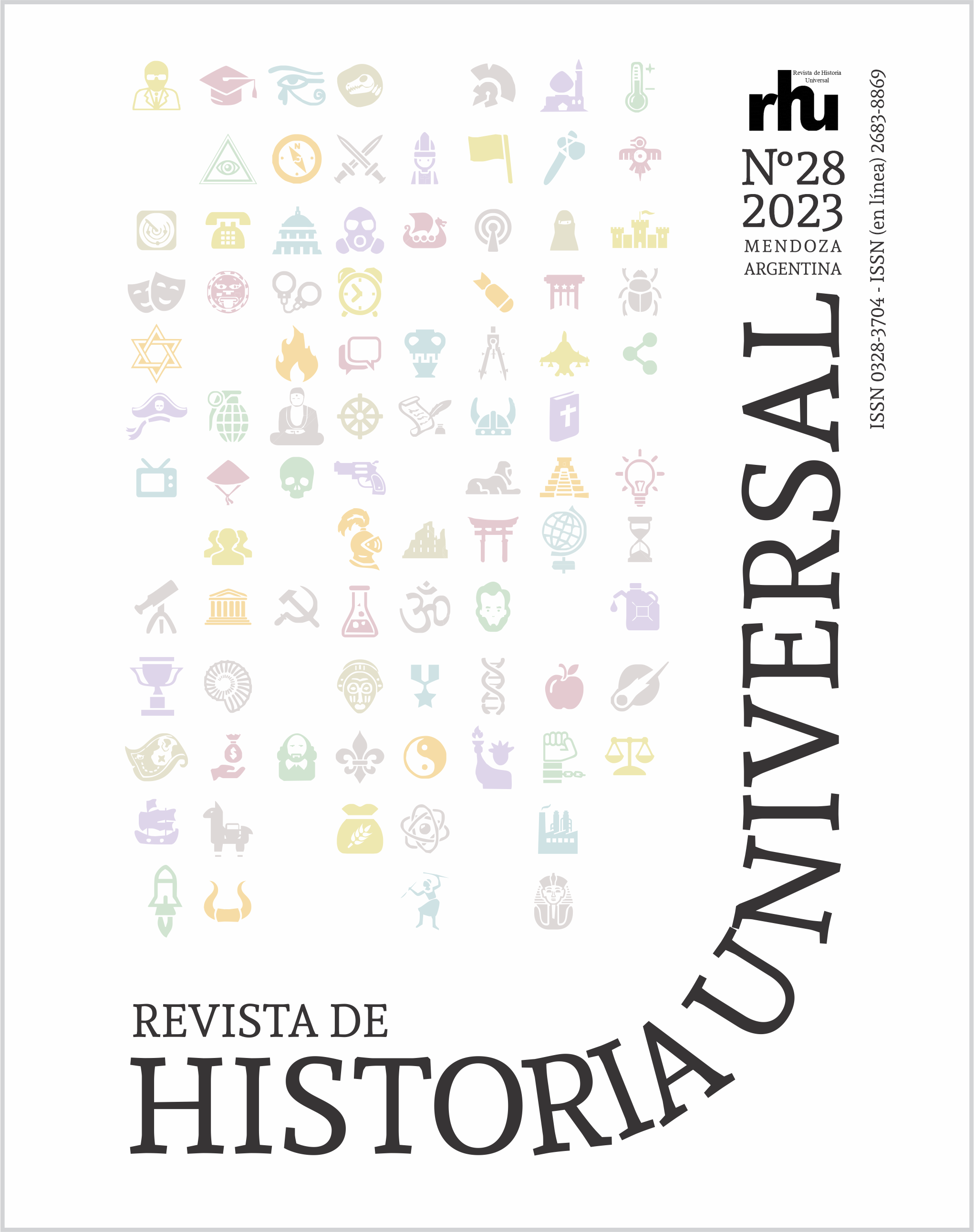Given the re-conceptualization and revaluation of the terms Populus Dei and Respublica during the Late Antique. Augustine of Hippo, theoretical support of the new Christian era
Keywords:
Late antiquity, Saint Augustine, Christian tradition, Populus Dei, Christian Res-publicaAbstract
The Late Antiquity as a novel concept and periodization, had among the authors who gave it form and meaning Henry Irenée Marrou who, in 1938, published Saint Augustin et le fin du culture Antique (De Boccard). Augustine of Hippo, has been for Marrou, a privileged witness of the tensions between pagans, Christians and barbarians that preluded the destruction and occupation of Rome in 410. In Marrou's words, Saint Augustine “is the great Western theorist dedicated to the formulation of "a new Christian ideal apart from the classical tradition." It was he who served as the theoretical support of the new Christian era. In this work I will present a study of the concepts of “Populus Dei” and “Christian Res-publica”. The great bishop of Hippo took as his political-religious archetype the Ciceronian republic, which fell from grace as a result of the political immorality of the late republic. Based on this, Augustine presents the republican system with its axis in virtue as a moralizing element and focused on the concept of “true justice”, typical of Christians.
References
Ahumada Duran, R. (2016). La crítica de Henri Marrou al positivismo histórico. El retorno del sujeto en la elaboración del saber histórico. Cuadernos de Historia, 44, 139-181.
García Alonso, M. (2009). La Ciudad de Dios como alternativa al Sueño de Escipión. Los primeros pasos de la Teología Política cristiana. Revista Pensamiento, 55, 197-219.
Eusebio de Cesarea (1994). Vida de Constantino. Gredos.
Hubeñak, F. (2019). Una relectura de San Agustín desde la historia. Revista Forum, 8, 73-92.
Inglebert, H. (1996). Les romains chrétiens face a l’histoire de Rome. Histoire, christianisme et romanités en Occident dans l’Antiquité tardive (III-V siècles). Institut d’Études Augustiniennes.
Marrou, H. I. (1938). Saint Augustin et le fin du culture antique. Biblioteque des Ecole Francaise de Athene et de Rome.
Marrou, H. I. (1954). De la Connaissance Historique. Éditions du Seuil.
Riegl, A. (1901). Die spätrömische Kunst-Industrie: nach den Funden in Österreich-Ungarn, im Zusammenhange mit der Gesammtentwicklung der bildenden Künste bei den Mittelmeervölkern. Druck und Verlag der Kaiserlich- Königlichen Hof- und Staatsdruckerei. Österr Archäologisches Institut.
Rossi, M. A. (2015). La decadencia del Imperio romano desde la perspectiva de Agustín de Hipona. Circe, XIX, 33-53.
Agustín de Hipona (2014). Sermones (Tomo VII). B.A.C.
Agustín de Hipona (1958). De Civitate Dei (Tomos XVI-XVII). B.A.C.
Agustín de Hipona (1953). Cartas (Tomos X y XI). B.A.C.
Downloads
Published
How to Cite
Issue
Section
License

This work is licensed under a Creative Commons Attribution-NonCommercial-ShareAlike 4.0 International License.







